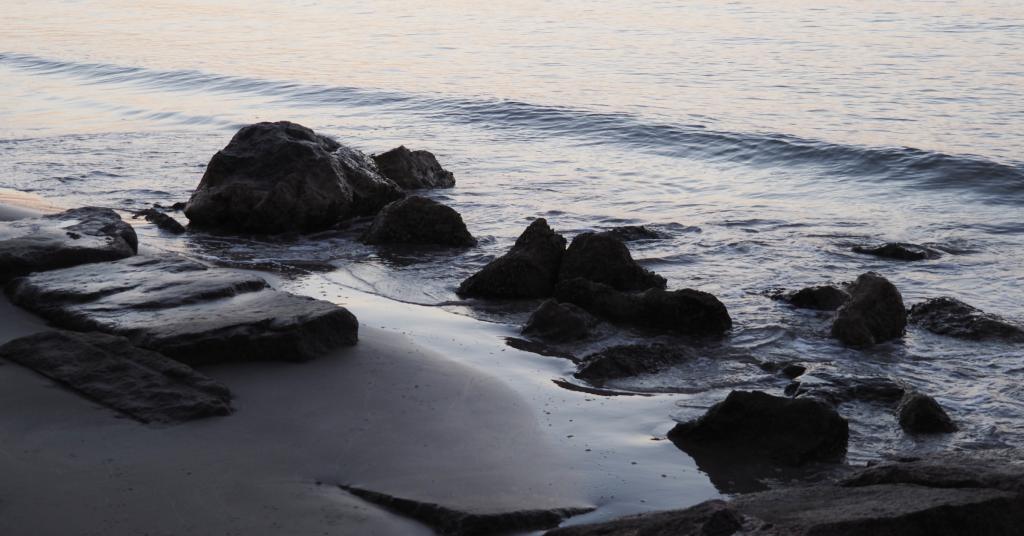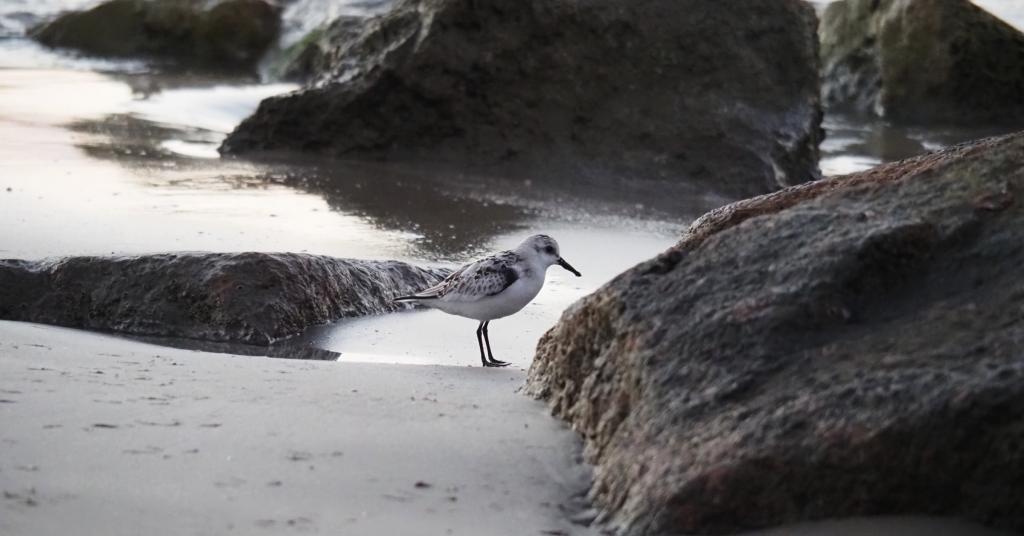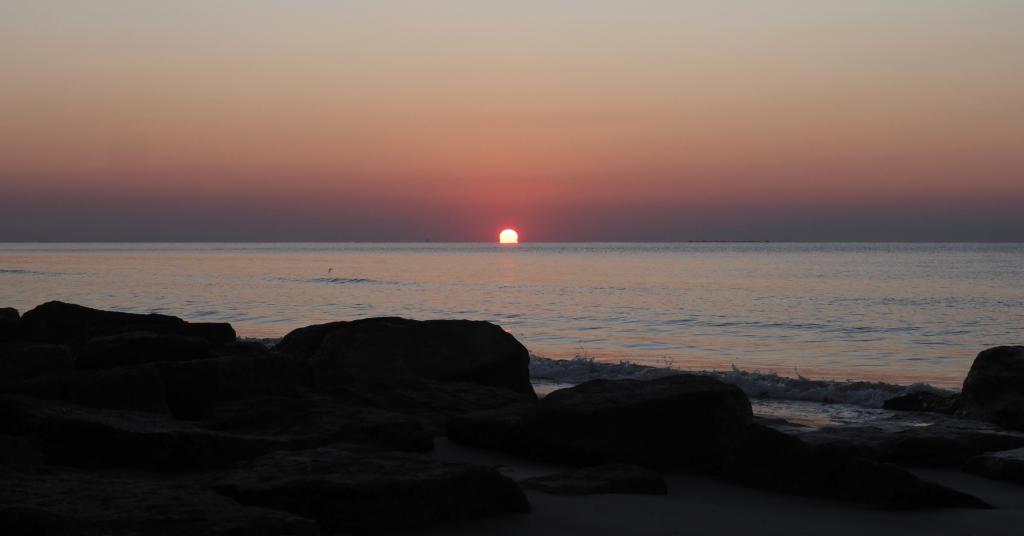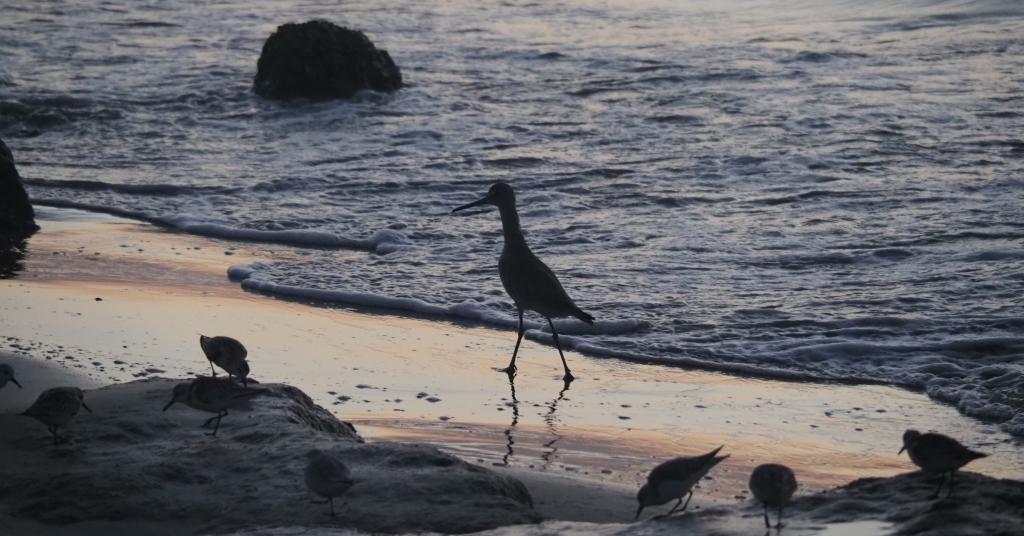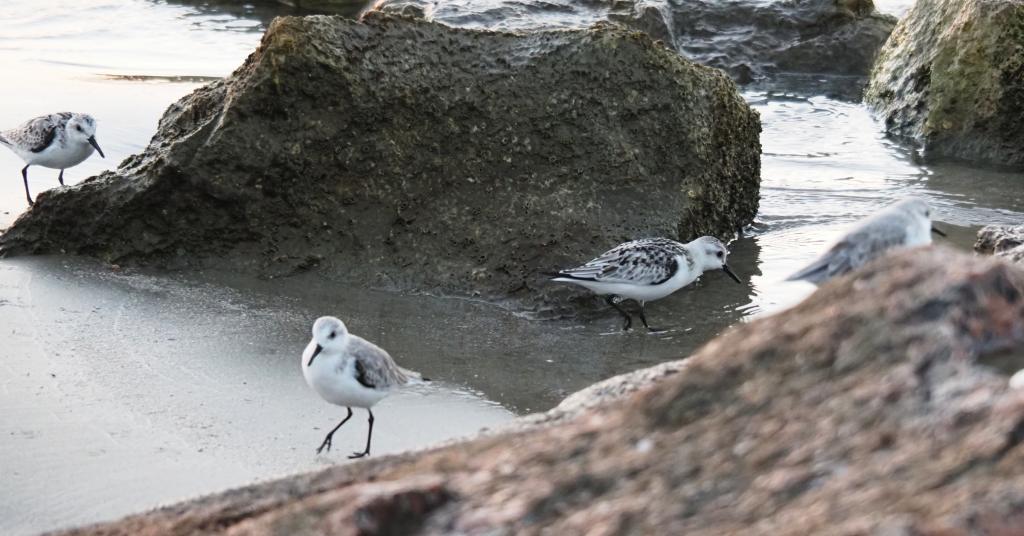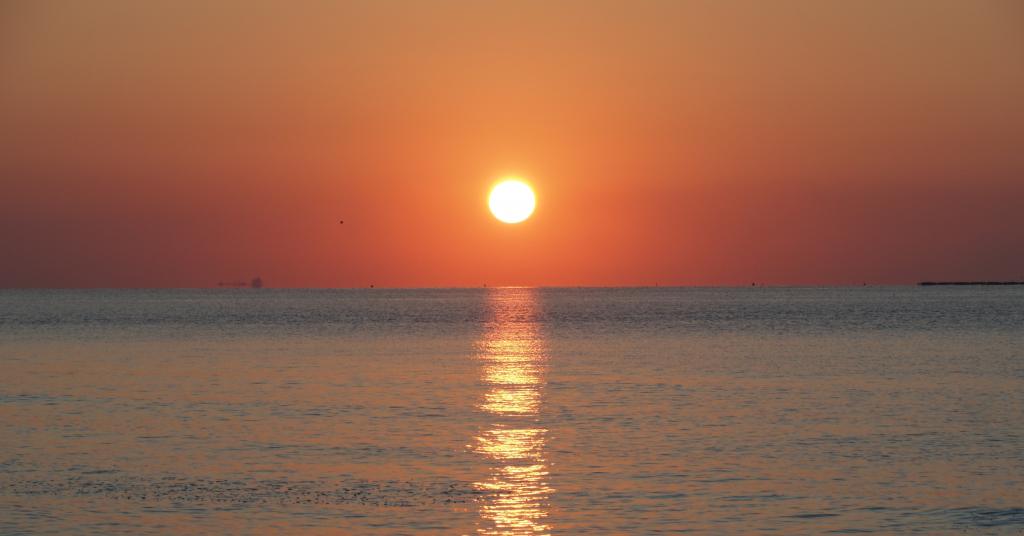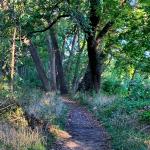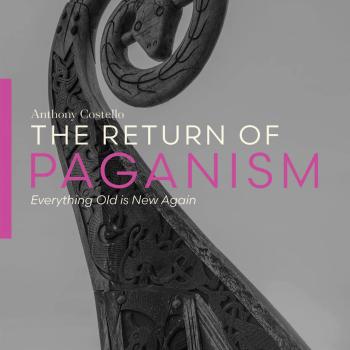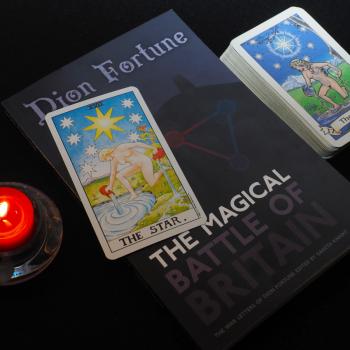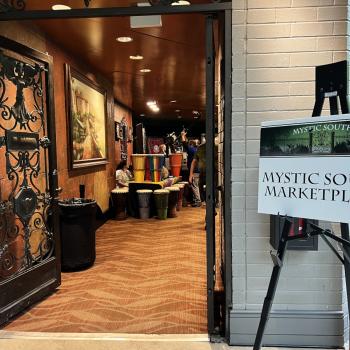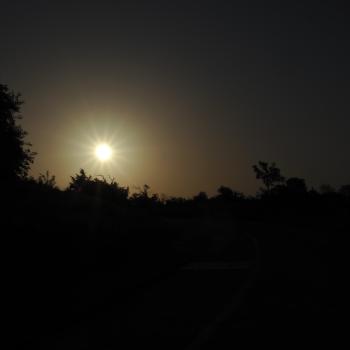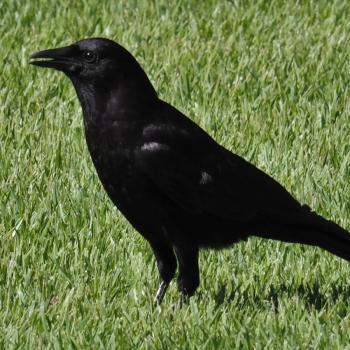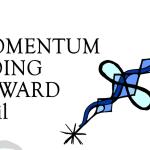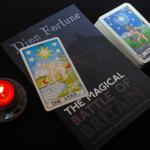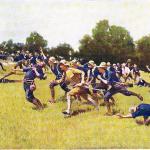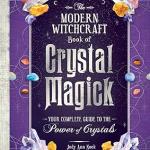Sunday’s post We Owe Toxic Ancestors Nothing generated a lot of conversation (most of it on Facebook). Most of it was in agreement and many people affirmed the key point: if honoring, remembering, or interacting with a dead person causes you distress, don’t do it. You’re not a bad Pagan for not honoring abusive ancestors.
Others pointed out that the issue is bigger than that. We have the opportunity to help ancestors heal. We have an obligation to repair damage they caused to our families and our wider societies, and that often means working with them. There was considerable disagreement as to how much the dead change after death.
Some argued we must (or at least, should) forgive the dead no matter what they did. As I hope is obvious, I don’t agree with that. Forgive people when you’re ready to forgive them, not when someone else says you must.
I intended to write a follow-up post on working with troublesome ancestors, and I probably will – maybe as soon as next week. But before we talk about how we work with the dead, we need to talk about who and what the dead are. We need a theology of the dead.
Such a theology will necessarily be speculative. We know much about death and what comes afterwards, but we know none of it with certainty. We have no scriptures to give us definitive answers. We have much in the way of legends and lore, but it points in many different directions.
But we can take what we have, draw reasonable conclusions, and then see how it matches our experiences and the experiences of our co-religionists. We can use it to guide our interactions with our ancestors and see how it works. We can make adjustments as we learn more. We will never be able to say it’s true in an absolute sense, but we will be able to say that it’s reasonable and helpful.
Theology is the study of the Gods
I need to credit writer and witch Sara Amis for the title of this post. She wrote a follow-up to my toxic ancestors piece she titled A Theological Argument for Ancestor Reverence. I’ll be referring to it later in this post, and again when I write on working with troublesome ancestors. Her title reminded me that this is a theological issue.
Theology is the study of the Gods – and it was invented by Pagans, not by Christians. Since this piece doesn’t deal directly with the Gods, it might be better to call it “A Pagan Doctrine of the Dead.” But any time we’re talking about the dead, the Otherworld, and other topics outside the boundaries of the ordinary world, we are talking about the realm of the Gods. And so I think it’s proper to consider this a work of theology.
And with that out of the way, let’s explore the dead.
We never truly die
I’m an animist, not a panpsychic. But I agree with the panpsychics that consciousness – not matter – is fundamental to life. So while it’s obvious that our bodies will die, decompose, and return to the Earth, that doesn’t mean the essence of who and what we are will end with physical death.
That we cannot explain this in materialist terms doesn’t mean it can’t be true.
At Samhain – and at other times – we experience the presence of our beloved dead. We honor them, we talk to them, and if we listen closely, we hear from them (though rarely with our physical ears). We can – to varying degrees – journey into the Otherworld, the land the of Gods and ancestors.
All this tells us that the essence of who we are survives death, and likely can never die.
Death is a transition
That doesn’t mean death isn’t real – of course it is. But just as birth is the transition from the Otherworld (or however you envision the realm of the Gods and ancestors) to this world, so death is the transition from this world to the Otherworld.
As with birth, you don’t have to do anything extraordinary for this to happen. Also as with birth, that doesn’t mean it’s easy – for you or for those going through the process with you. There is a reason why many traditions teach that at the moment of death, ancestors or Gods or angels gather to help the dying make the transition.
Some don’t make the transition well, particularly those who die unexpectedly and/or violently, and those who are unusually afraid to move on to whatever comes next. It’s normal to fear the unknown, but there’s difference between being afraid and being paralyzed by fear. These people may get stuck and need help moving on.
I’m convinced that most of what we call ghosts are simply remnants of leftover energy – they do the same things in the same ways over and over again. But some are spirits who, for whatever reason, have not made the transition from this life to the next life.
But most of the dead make this transition successfully. That leads to the next question.
Who are you without a body or a brain?
In this life, we experience everything through our senses. We process it with our brains. Our memories are stored in our brains. Our emotions are tied up with our chemistry.
Who are we when we no longer have those things? How will we respond to fear and anger when chemicals no longer move us to fight or flight?
Death doesn’t strip us of what it means to be human – our interactions with the dead make that clear. But when you remove inputs from the senses and the filters of the brain, what you get is different from what you had with those things.
I like to think this makes it possible for the dead to see things more clearly than the living.
If they will.
What is the essence of you?
Who are you when you strip away all your masks? Who are you when you peel back all your layers? What’s at the core of you?
For me, that’s an eternal curiosity – I want to know. And it’s the belief that I can know, or at least, that I can move toward greater knowledge.
That’s me – you’re probably different. What’s important here is that the core of who and what we are isn’t some emotionless spirit whose only desire is the elimination of desire. Being human is more than being an animal with a big brain and the capacity for language. From an animistic perspective, it’s probably better to say “being a person” instead of “being human” – what we are isn’t categorically different from what other animals are.
The point is that death strips away our masks and leaves us with the essence of who and what we are, but it doesn’t change that essence – at least not right away. And we’re not all the same at our core.
Beware of assuming your values are the ideal condition
In political discourse, the classic liberal error is to assume that if everyone had all the facts they would think and vote like we do. Thus the ultimate solution to every problem is more and better education. This ignores the fact that different people have different values, and perhaps more importantly, different foundational assumptions about the world and how it works.
Death removes the influence of brain chemistry. It removes the influences of living in a world that, for all its joy and beauty, is difficult and often unjust. It does not erase the impact of having lived with those things for a lifetime. And it doesn’t automatically rearrange someone’s values to bring them into alignment with what you think they should be.
People are who they are in death, just as they are in life.
Healing, learning, and growth take time
Difficult experiences need not rise to the level of PTSD to have a long-term impact on our lives, and calls to “just get over it” or “just move on” are not helpful. Healing takes time and conscious effort. Death can put an end to suffering, but it does not immediately remove the impact of that suffering.
It is generally not helpful – to anyone – to label people who do bad things as “bad people” and write them off as irredeemable. This is as true after death as it is in life. But it is just as unhelpful to assume that people who did bad things in life suddenly become fully compassionate, repent, and no longer want to do bad things. As we discussed in the section above, they may not think that what they did was bad at all.
In the Otherworld, in the afterlife, we learn and grow and process things in ways we cannot do in this world. But all that takes time. Depending on what’s involved, that may take years. It may take decades. It may take several more cycles of living and dying.
Yes, our ancestors who did bad things can heal. We can help with that. But death alone isn’t enough to do it.
The dead are busy doing things of the dead
I do not believe there is a cosmic scorekeeper. I do not believe in rewards and punishments. I do believe in consequences – in the afterlife and in future lives – in the sense of cause and effect.
Most of the dead live their lives (afterlives?) in the Otherworld, doing whatever it is they do there. Modern Pagan lore says that begins with rest and with reunion with those who have gone before. That makes sense, and besides, I like it.
But eventually it’s time to do what you went there to do. I suspect that’s a lot of reflection and thinking about what to do differently next time, but I also suspect there is work we can do there that we cannot do here. Regardless, the dead are busy doing things of the dead, just as we’re busy doing things of the living. They’re not always there when we call to them.
Except some of them are readily available.
Ancestors vs. dead people
Sara Amis made this point in her post:
There is a difference between deified Ancestors and dead people you just happen to be related to. The former are the healed, integrated, connected ones, and those are the ones you want to make connections with at your ancestor altar. In practice they are the ones who generally show up strongest and first. But if you are trying to work through family trauma or other challenging aspects of your ancestry, you may be surprised at who shows up ready to help out.
This is a point I hear often from those who practice religions where ancestor veneration has been done continuously for hundreds – and likely, thousands – of years. Some have special titles for these people, but whatever they call them, they’re not ordinary dead. They’re people who have reached a level – through their own efforts, through the efforts of the living, and through the work of the Gods – where they have the skills, abilities, and inclination to help others on their spiritual journeys.
All the dead are worthy of our remembrance and our honor (unless they aren’t – that was the point of Sunday’s post), but these ancestral allies are the ones we need to work with closely and diligently.
Eventually we reincarnate
As our time in this world is limited, so is our time in the Otherworld. Eventually we’ve done all the rest, reunion, and reflection we can do. Or we’re needed back here. Or something happens that sends us back. I have only the wildest of speculations as to the process and its triggers.
But based on the teachings of many religions and on my own past life experiences, I’m convinced that at some point we return to this world.
I think we have some choice in where and when we reincarnate. Many traditions teach that people tend to reincarnate in the same family lines. I have no reason to doubt that’s generally true, but also no reason to assume it’s universally true.
Beware jumping to unsupported conclusions: nobody chooses a life of suffering.
Until we stop reincarnating
How many times will we reincarnate? I have distinct memories from five separate lives before this one – there may be others I don’t remember. I don’t think I’m anywhere near done.
Does this process continue forever? I don’t think so.
At some point, some people simply remain in the Otherworld. Some achieve apotheosis – they become Gods, and move from doing ancestor things to doing God things.
I’m intrigued by the Buddhist concept of nirvana. While I think my thirst for learning and knowledge is infinite, there may come a day – a year, a lifetime – when that thirst is finally quenched, when even helping others to learn and grow ceases to satisfy.
I like to think that at that point, there’s an option to simply stop and to return to where ever it was we were before we started all this. I’m a Pagan and not a Buddhist, but I think the Buddhists may be on to something here.
Toward a more robust Theology of the Dead
Some say we should keep our focus entirely on this world while we’re here. There is a certain logic to that. But if we’re going to honor, venerate, and work with the dead, we need a good idea of who and what the dead are, what we can expect from them, and what we can’t.
This post is long by blog standards, but it’s still a brief, high-level exploration of a very deep topic. I hope others will pick up where I’ve left off, critique errors, make additions, and move us toward a more robust Theology of the Dead.


